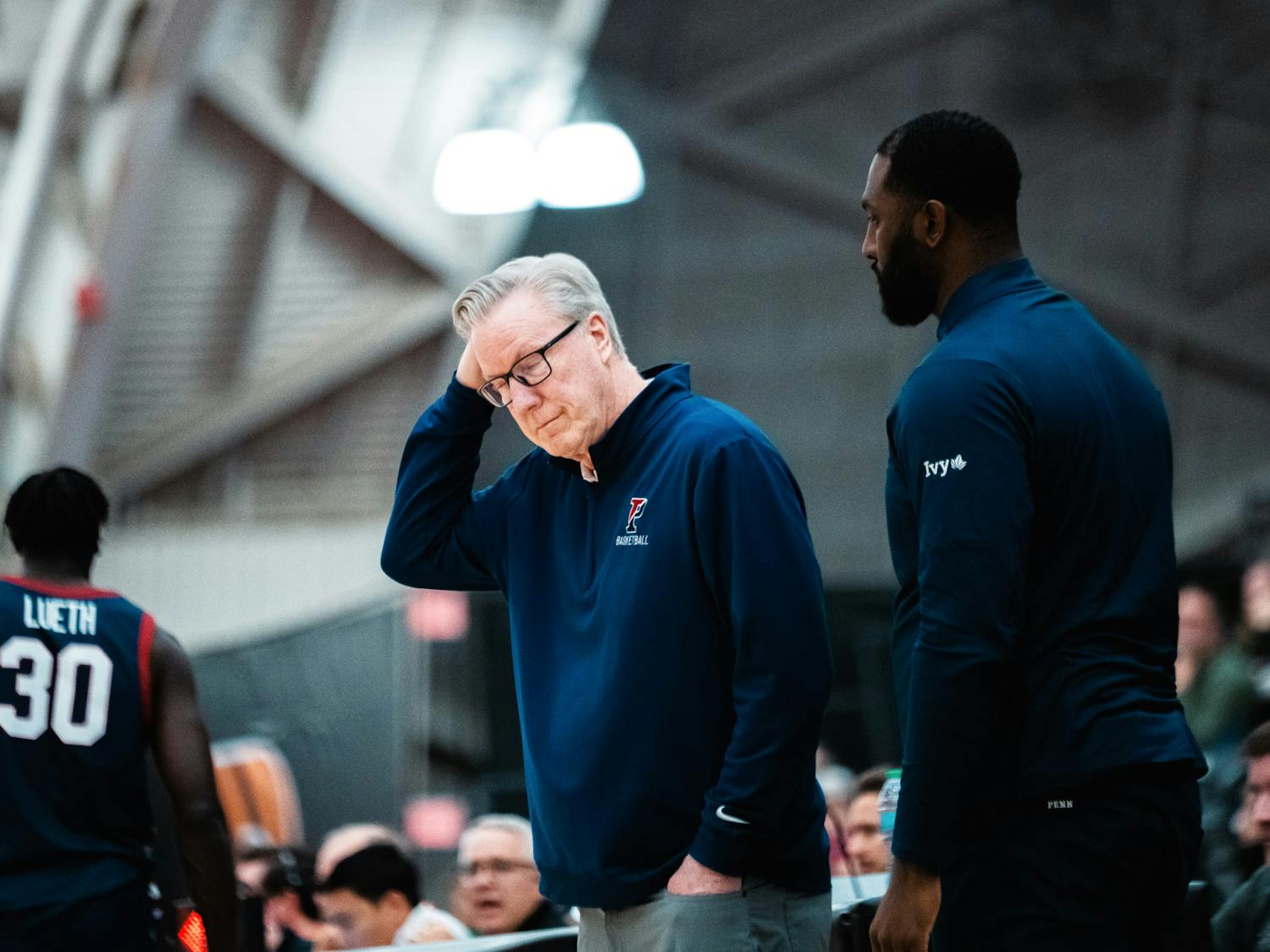For the Penn heavyweight crew team's first race of the season on salt water, the more necessary salt might have been of the smelling variety.
On a wild day at the Orchard Beach Lagoon in New York, the No. 8 Quakers collided with No. 12 Yale's boat twice, had a post-race protest disallowed and eventually lost by 0.7 seconds to the Elis, while unranked Columbia finished third on its home waters at the Blackwell Cup.
The result was "a little disappointing," Penn coach Stan Bergman said. The Red and Blue were leading going into the last 500 meters when the collision occurred and did not resettle until only about 10 strokes remained in the race.
"We didn't do a good job, I guess, reacting to that, and Yale responded really well," Bergman said. "We ended up clashing oars again the last four or five strokes of the race, and they ended up just nipping us."
"The course didn't have very good markings for the lanes," which played a part in the collisions, senior Hobey Stuart said. "The Yale coxswain steered into our lane, so Yale ended up sprinting through us."
After the race, the Quakers filed a protest against the Yale maneuver.
"The referee repeatedly warned Yale not to come into our water, and Yale didn't listen," Penn junior coxswain Andrew Kelly said.
Once on land, the tension rose as two land-based referees heard both coxswains' arguments, as well as the views of the on-the-water referee, who "pretty much sided with us," Kelly said. After two hours of deliberation, the protest was rejected. Had that not happened, the race would have had to be re-run.
"We definitely did" want to race again, Kelly said. However, Kelly conceded that the situation was "partly our fault because we should have never let the lead get that close."
The coxswain also voiced displeasure with the way the protest was handled, calling it "kind of ridiculous."
"Normally, if there's only one referee concerned, he would just make the call," he said. "But because there was more than one referee, he really didn't get to decide.
"He just had to give the case, and the other two referees had to decide whether to overturn the protest."
Overall, Bergman was pleased with his team's effort.
"I think the crew's got a lot of speed," he said. "We just have to work on our sprint a little bit. We've just got to keep working hard and pull together, keep trying to get faster every time we go on the water."
Reviews were mixed for the historic course just off Long Island Sound -- the course was used for Olympic trials in 1968. While Bergman felt that "the water was good," Stuart felt that the conditions were "less than desirable."
"It's the ocean, and you get waves coming in, salt water spray everywhere," Stuart said. "This was a tidal place, so it meant that we could only race during certain hours."








